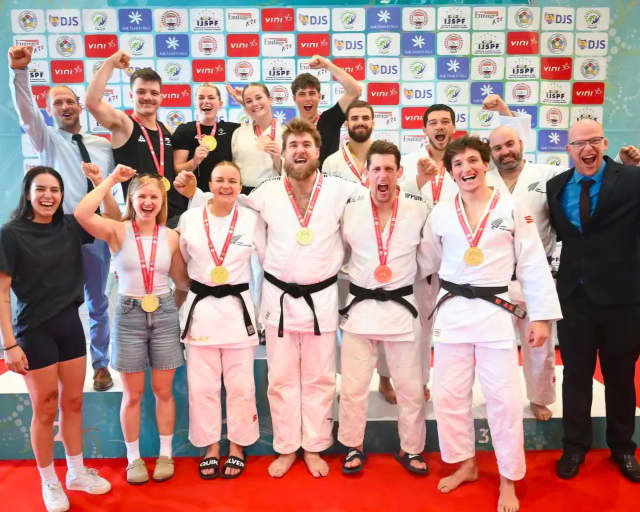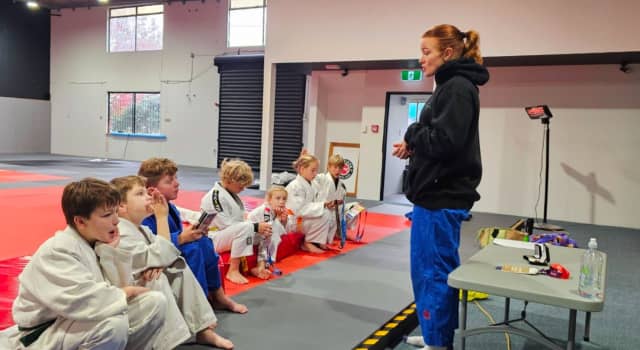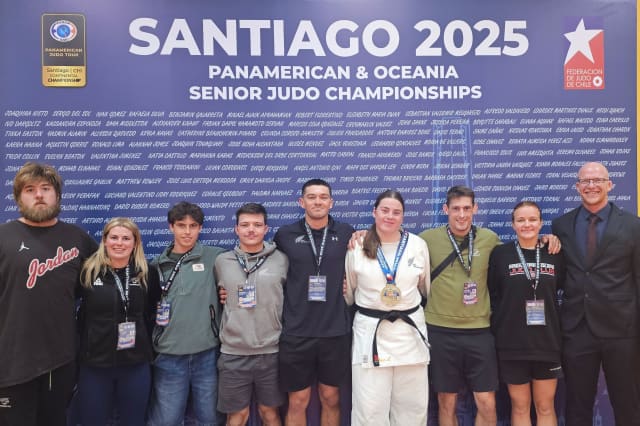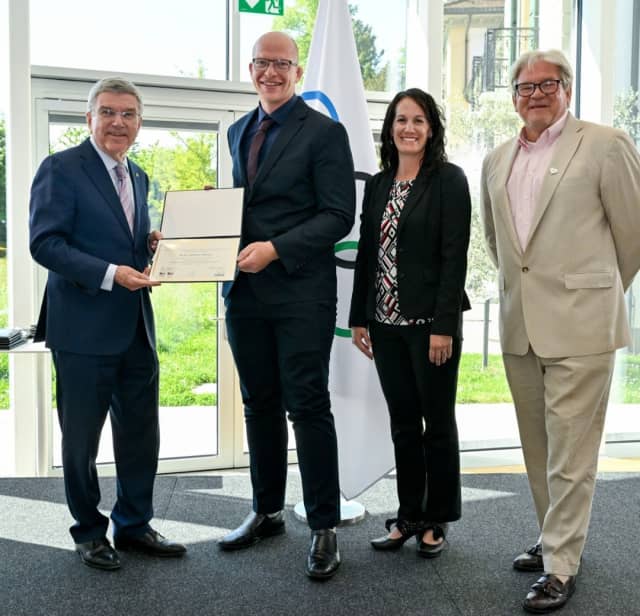"The online component included self-directed coursework, assessments, reflective tasks and monthly Zoom sessions with tutors and fellow participants. The in-person segment took place in the U.S. over a three-week period. The first week was spent at the U.S. Olympic Training Centre, the second week involved an internship at a judo club in San Francisco and the final week was held at the University of Delaware.
With a background in sport and exercise science, I found the course content to be a valuable refresher, reinforcing my coaching philosophies. Reflection challenged me to integrate learning from the course into my coaching practice and made me examine the ‘why’ behind the things I did.
The primary objective of the course was to design and implement a meaningful and sustainable coaching initiative in our home countries. My project was to be based on my home club (Premiere Equipe): ‘Development of a High Performance Programme within a Community Based Setting.’
In March, our projects were presented to a jury, where a pass/fail determination was made and determined if we were to travel to Lausanne, Switzerland, for a final teaching block and graduation. I was pleased to receive the news that my project had passed as it also gave me the opportunity to present my project outcomes at the headquarters of the International Olympic Committee (IOC) and also the International Judo Federation.
While I was very proud of myself for the project I delivered, the tangible results are where the real impact can be seen. At the last national championships our club walked away with 50% of the senior national titles. Our high-performance programme has grown from 9 to 14 members in just six months, with two additional athletes planning to join before the year’s end.
At the recent Pan American-Oceania Championships held in Chile, New Zealand had its largest team ever, of which 5 of the 10 athletes were from our club. It was also very humbling to have a further 3 request my support as their competition coach at the event. One of them was Sydnee Andrews who has entrusted her in-comp preparation with me, even though much of her day-to day training is in the UK currently, and it was very rewarding to see her walk away with a silver medal.
A core theme of the project was to 'create judo heroes.' With the growing profile of our programme, we are making strides toward this goal. Over the next 12 months, I will focus on expanding our pre-high performance space and establishing a junior academy.
As with many professional development programmes, the informal conversations between sessions were just as impactful as the formal education. I now have a global network of coaches whom I trust and have already leaned on for support. It’s crazy to think that we began as strangers from all over the world on a Zoom meeting and have now become lifelong colleagues and friends.
To call the ICECP life-changing would be an understatement. I would wholeheartedly recommend it to any coach looking to elevate their impact. I wish to offer my gratitude and thanks to the New Zealand Olympic Committee, Olympic Solidarity and the USOPC/University of Delaware, and of course to my judo club Premiere Equipe and additionally to my team behind the team: mum, Moira, Sam and Norah, for being so selfless during such challenging times."
The experience of Jason Koster helps all to understand the importance of education, especially in the coaching world. There is always space for improvement and development that can benefit the coaches themselves of course, but also all the athletes they are taking care of. It is great to see that New Zealand can benefit from it and we are looking forward to seeing the concrete fruits of it.





